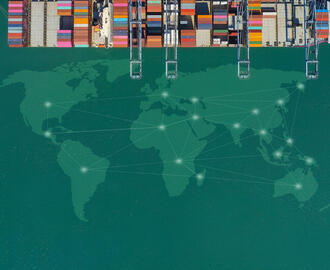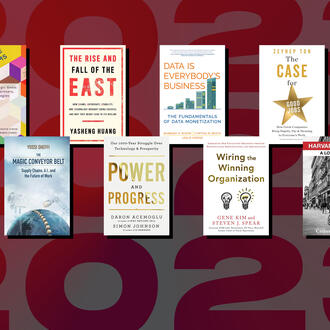Credit: Mimi Phan
Ideas Made to Matter
Operations Management
What students are learning in this popular operations strategy class
Take a look at the seating chart for one of Zeynep Ton’s classes, and you’ll notice color-coding that marks which students speak the most and the least. Then there’s the handwritten notes on who might have a unique perspective on the session’s case study, and if a cellphone comes out during class, Ton’s not afraid to call out the offending student.
Ton’s classroom expectations and standards are so high, she said, because if her students expect to be able to use what they learn from her in the field, their own standards will need to be equally lofty. It’s a notion at the core of her Good Jobs Strategy, and she’s one to practice what she preaches.
Her course, “Management of Services: Concepts, Design, and Delivery,” was recently named one of the 20 winners of this year’s “Ideas Worth Teaching” awards by the Aspen Institute.
To make the strategy work, “you need high standards, and deep care for people,” the MIT Sloan adjunct associate professor of operations management said. “I try to model that … When you combine those high standards and deep care for people, you’re setting them up for success by designing your operations well and respecting their time and capabilities … Without those high standards, you can’t really get high performance.
The syllabus is built on her own research into how an organization can offer good jobs while simultaneously creating value for all of its stakeholders, generating motivated employees, loyal customers, and shareholders with outsized returns.
The first part of the course explores what creating value for those stakeholders really means. “Once we have the ‘Customers, Employee, Investor’ framework, we say ‘What are some of the choices we need to make to ensure that all three [stakeholders] are happy?” Ton said. “What my students learn is that it takes a whole operating system and careful choices. It’s not just about having good values or investing in people and paying employees well. It requires operational excellence.”
That excellence, Ton said, comes from having a motivated and capable workforce; making operational decisions that improve the productivity, contributions, and opportunities for continuous improvement of its members; holding values that put the customer first and treat people as a company’s most valuable resource; and emphasizes continuous improvement.
This framework is outlined in her 2014 book “The Good Jobs Strategy,” which details four “operational choices” central to the strategy: offer less, standardize and empower, cross-train, and operate with slack.
Building that sort of culture starts from the ground up, she said, and the willingness of the company’s leadership to solicit and implement advice and recommendations from rank-and-file workers is crucial.
“People on the front lines are the ones closest to the work, and they’re the ones who are able to see problems,” Ton said. “You can get so much information to improve your operation if you can create a strong system to get those ideas and act on them.”
The remainder of the course takes a closer look at companies that were operating in a “vicious cycle” of low employee morale, high turnover, and customer dissatisfaction and turned toward a “virtuous cycle” by embracing Ton’s framework.
She features companies like Four Seasons, Southwest Airlines, and Mercadona, plus a series of guest speakers, including Costco’s founder Jim Sinegal, QuikTrip CEO Chet Cadieux, and CEO Dan Teran and CFO Chris Davis of Managed by Q, a New York-based start-up that offers a platform for office management.
“My students see multiple cases of companies employing the same practices that create excellence,” she said. “If they just saw Costco, they can find all the excuses [why Costco is different.] But when they see that a convenience store chain can also do it, and a supermarket in Spain can also do it, an airline can do it, a hotel, a cleaning company. And they all do it the same way. We find generalizable lessons.”



